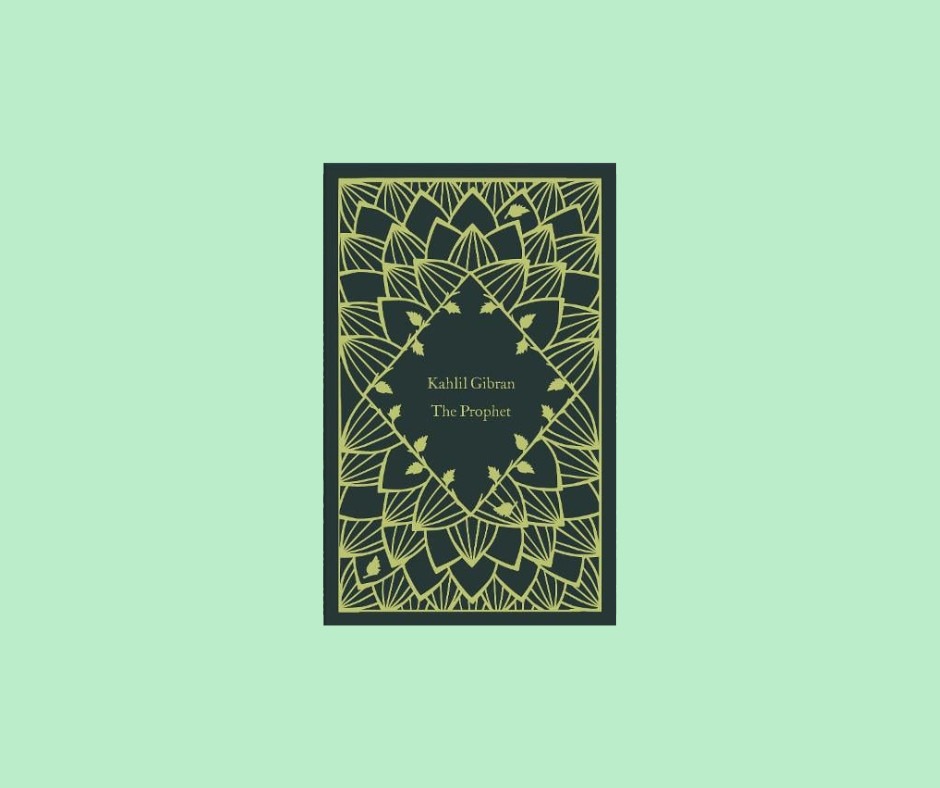‘The Prophet by Kahlil Gibran’: a timeless classic, 100 years on
The Prophet, a collection of 26 essays by Kahlil Gibran, is a literary masterpiece that has captured the hearts and minds of readers for a century. Gibran’s lyrical language and profound insights into the human condition have made his seminal work a beloved classic, inspiring generations of readers with its wisdom and beauty.
One of the most striking features of The Prophet is Gibran’s poetic language. His writing is rich and evocative, full of metaphor, imagery, and Parnassian symbolism. Each essay is structured as a dialogue between a prophet and the people of a fictional city, Orphalese, and Gibran’s use of language creates a vivid sense of place and atmosphere.
The Prophet‘s beauty lies not only in its language, however, but also in its profound insights into the human experience. Gibran tackles a wide range of topics, from love and marriage to work and death, and his essays are filled with timeless wisdom and insight. Perhaps one of the most powerful themes in the book is the idea of love as a transformative force. Gibran argues that love is not just a feeling or emotion, but a state of being that can transform both the lover and the beloved. He writes,
Love gives naught but itself and takes naught but from itself. Love possesses not nor would it be possessed; for love is sufficient unto love
This idea of love as a selfless and transformative force is particularly relevant in our modern world, where we are often told to pursue self-interest and material gain. The Prophet reminds us that true happiness and fulfilment come not from what we have, but from who we are and how we love.
Another powerful theme Gibran arises is the idea of work as a means of self-expression and service to others. Gibran argues that work should not be seen as a burden or a means to an end, but as a creative act that allows us to express our true selves and contribute to the world around us. He writes,
Work is love made visible. And if you cannot work with love but only with distaste, it is better that you should leave your work and sit at the gate of the temple and take alms of those who work with joy
This idea of work as a form of love and service is particularly relevant in our modern world, where many people feel trapped in jobs that do not fulfil them or contribute to the greater good. The Prophet reminds us that we have the power to shape our own work and to find meaning and purpose in what we do, now more than ever.
Throughout The Prophet, Gibran’s insights into life, love, and the human condition are expressed with profound beauty and grace. His writing is not only poetic, but also deeply spiritual, touching on themes of transcendence and the divine. In one essay, Gibran explores the concept of joy, writing,
Your joy is your sorrow unmasked. And the selfsame well from which your laughter rises was oftentimes filled with your tears. And how else can it be? The deeper that sorrow carves into your being, the more joy you can contain
This idea of joy emerging from sorrow is a powerful reminder that life’s challenges and difficulties can ultimately lead us to greater fulfilment and happiness. It is a testament to Gibran’s ability to capture the complexity of the human experience and to express it with profound beauty and depth.
A 100 years on, The Prophet remains a timeless classic of profound beauty and wisdom. Gibran’s poetic language and insights into the human experience constitutes a beloved classic, inspiring readers of all ages and backgrounds with its timeless message of love, purpose, and transcendence. Whether you are seeking inspiration, guidance, or simply a beautiful and profound work of literature, The Prophet is a must-read.
Rating: 5/5 stars

Comments